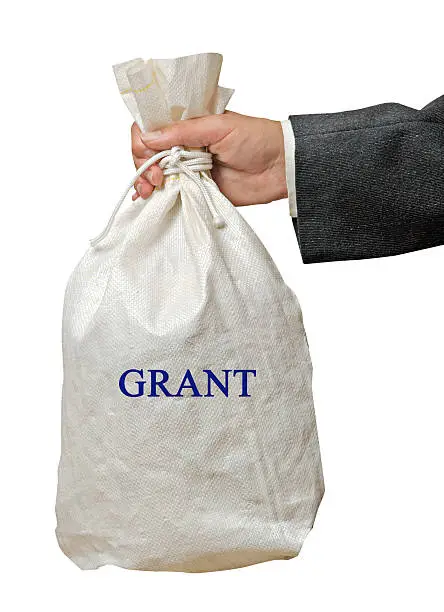Grant funding for churches is an essential avenue for securing financial resources that can support their missions, programs, and community engagement efforts.
Whether you’re a small local congregation or a larger church aiming to expand its outreach, grants can provide the financial backing needed to carry out critical initiatives.
In this article, we will break down how churches can access grant funding, explore various types of grants available, and share detailed tips on writing effective grant proposals.
Let’s dive deeper into the world of grant funding and explore how churches can unlock opportunities for growth and community impact.
Why Churches Need Grants
Churches play an invaluable role in communities, offering spiritual guidance, support, and outreach. However, maintaining and expanding their operations often requires significant financial resources. From renovating buildings to funding community programs, churches often face financial hurdles that cannot be overcome through tithing alone.
Grants offer churches the opportunity to receive funding for specific projects without the burden of repayment. These funds can be used for:
- Community development programs.
- Building maintenance and renovations.
- Educational initiatives.
- Support for vulnerable populations.
- Outreach and mission trips.
- Cultural and arts programs.
- Expanding worship services and facilities.
In fact, research from the National Philanthropic Trust found that faith-based organizations receive approximately $10 billion in charitable donations every year. While a portion of this comes from congregational giving, churches can significantly increase their funding capacity by applying for grants from private foundations, government agencies, and corporate sponsors.
But why is this so important? Imagine your church being able to build a new community center that serves as a safe haven for youth, provides after-school tutoring, or houses a food pantry. Grants can turn these visions into reality by providing the necessary funding. Without these funds, such transformative projects might remain mere dreams.
Types of Grants for Churches
Understanding the types of grants available is crucial when seeking funding for your church. There are many types of grants, each suited for different church needs and projects. Below are some common grant categories for churches:
- Government Grants
Churches can apply for federal, state, or local government grants, especially when their projects focus on public services or community-based initiatives. These grants typically fund programs that benefit the broader community, such as educational initiatives, disaster relief efforts, or homelessness programs. While churches can receive government grants, they must ensure that their projects do not promote religious activities, in compliance with the Establishment Clause of the First Amendment.Example:
The Community Development Block Grant (CDBG) program, administered by the U.S. Department of Housing and Urban Development (HUD), can be used by churches involved in local economic development projects that benefit low- and moderate-income neighborhoods. According to HUD, CDBG has helped revitalize communities by funding projects like housing rehabilitation, community services, and infrastructure improvements. - Private Foundation Grants
Many private foundations fund faith-based organizations, particularly those with a focus on serving marginalized or vulnerable populations. These grants are often more flexible than government funding and can be used for a wide variety of programs, including outreach, social services, and arts initiatives.Example:
The Lilly Endowment supports church-related projects that foster leadership development, religious education, and community engagement, particularly in underserved areas. According to the Lilly Endowment’s annual report, millions of dollars are allocated each year to support transformative community projects driven by faith-based organizations. - Corporate Sponsorship and Grants
Corporations often offer grants and sponsorships to support community-based initiatives. Churches involved in projects like food drives, youth programs, or environmental sustainability may be eligible for these funds. Corporate foundations look for projects that align with their business goals, so tailor your grant application to highlight the community impact of your work.Example:
The Walmart Foundation provides funding for churches involved in hunger relief, community health, and disaster recovery efforts. Walmart’s 2023 philanthropic report noted that their grants contributed to over 500 community projects nationwide, many of which were spearheaded by local churches and nonprofits. - Faith-Based Grants
Some grants are specifically designed for religious organizations. These funds are often provided by religious institutions, denominations, or faith-based grantmakers who wish to further the mission of churches and other religious organizations. They may support anything from educational programs to mission trips and church operations.Example:
The Christian Community Development Association (CCDA) provides grants to churches working on transformative, community-oriented projects that align with Christian values. A recent case study highlighted how a church used a CCDA grant to launch a community garden, providing fresh produce to local families while teaching sustainable farming practices.
How to Find Grants for Your Church
The key to securing grant funding for your church is finding the right opportunities. Fortunately, there are many tools and resources available to help you locate grants that fit your needs.
- Grant Databases and Websites
Websites like Grants.gov, Foundation Directory Online, and Instrumentl allow you to search for grants that align with your church’s mission and goals. These platforms provide access to thousands of funding opportunities, from local to national sources, and allow you to filter results based on categories like geographic location, religious affiliation, and program type.- Grants.gov is particularly valuable for federal grant opportunities. According to their statistics, thousands of grants are awarded each year, totaling billions of dollars across various sectors.
- Foundation Directory Online offers a comprehensive database of private foundation grants. Using this site can help narrow down foundations that have a history of supporting faith-based initiatives.
- Instrumentl combines grant discovery with management tools, which can make the application process smoother for churches.
- Contacting Local Foundations and Religious Groups
Reach out to foundations or local religious organizations that provide grants to faith-based initiatives. Many of these groups offer tailored resources for churches, and they may have specific programs designed to support religious organizations in your area. For instance, joining local community and religious networks can provide insight into upcoming grant opportunities before they are widely advertised. - Partnerships with Other Faith-Based Organizations
Collaborative efforts can open new doors for funding. If your church is working on a project with other churches or faith-based organizations, consider applying for joint grants. Many grant funders prefer to support initiatives that have a broader community impact. Collaboration not only strengthens your proposal but also allows for resource sharing and community building.
Writing an Effective Grant Proposal for Your Church
Once you’ve identified a grant opportunity, the next step is to write a compelling grant proposal. A successful proposal clearly communicates your church’s mission, the needs of your community, and the impact of your proposed project. Here are some detailed tips to help you craft a winning proposal:
- Understand the Funder’s Goals
Before writing your proposal, research the grantmaker’s priorities. Make sure your project aligns with their mission and funding criteria. For example, if the grant focuses on providing education, highlight how your church’s program will offer educational opportunities to underserved communities. Use language and key phrases that resonate with the funder’s objectives—common words like “community impact,” “sustainability,” “youth empowerment,” and “inclusivity” can be very persuasive. - Clearly Define the Project and Its Goals
Be specific about what you are seeking funding for. Whether it’s building a community garden, offering a youth mentorship program, or expanding your church’s worship services, explain the project’s goals, activities, and expected outcomes. Paint a vivid picture of how the grant will transform your church and community. Use simple language, bullet points, and clear headings to make your proposal easy to read. - Create a Detailed Budget
A well-structured budget is a critical part of any grant proposal. Break down the expenses involved in the project, including personnel costs, materials, equipment, and operational costs. Be transparent and realistic about the resources required to carry out the project successfully. A detailed budget not only shows your preparedness but also builds trust with the funders. - Demonstrate Community Impact
Funders want to know how their investment will make a difference. Highlight the positive impact your church’s project will have on the local community. Include data, testimonials, and research that support your claims. For example, you could say, “According to a recent survey, 85% of community members reported improved well-being after participating in our programs.” The more compelling and data-backed your case is, the higher the likelihood of receiving funding. - Follow the Instructions
Each grant has its own set of instructions and guidelines. Ensure that you carefully read and follow them to the letter. Failure to comply with the guidelines can result in your proposal being rejected. Double-check formatting, required attachments, deadlines, and specific questions the funder wants answered. - Review and Revise
Before submitting your proposal, have multiple people review it—ideally, someone with experience in grant writing. Fresh eyes might catch errors or suggest improvements. Revising your proposal multiple times can improve clarity and persuasiveness.
Top Tips for Grant Success
Securing grants requires persistence, preparation, and strategy. Here are some top tips to increase your chances of success:
- Start Early: Grant applications often require significant time and effort. Give yourself plenty of time to complete the application and gather any necessary documentation. Early preparation reduces stress and allows for more thorough proposals.
- Build Relationships: Cultivate relationships with funders and grant administrators. A personal connection can go a long way in securing funding. Attend workshops, seminars, or community meetings where you might meet potential funders.
- Keep Records: Maintain detailed records of your grant applications, including deadlines, submitted materials, and follow-up communications. This helps track progress, manage deadlines, and refine future proposals.
- Leverage Partnerships: Collaborate with other organizations or churches when possible. Funders often like to see that multiple groups are working together to address a community need. Partnerships can strengthen your application by pooling resources and expertise.
- Be Authentic: Share your church’s story authentically. Use real-life anecdotes and testimonials to illustrate the positive impact of your programs. Emotional connection can be a powerful motivator for funders.
Success Stories: Real-Life Examples of Churches Thriving Through Grants
To better understand the transformative power of grant funding, consider these inspiring success stories:
Example 1: A Church Community Garden
A small church in Ohio received a grant from a local foundation to establish a community garden. This garden not only provided fresh produce to local families but also served as an educational hub for teaching sustainable agriculture. As a result, the church saw increased community engagement and strengthened bonds with local residents. The project even inspired neighboring churches to start their own gardens.
Example 2: Youth Mentorship Program
A church in Texas collaborated with nearby schools and community organizations to launch a youth mentorship program. Through a combination of government and private foundation grants, the program offered tutoring, career counseling, and life skills workshops to over 200 teenagers annually. Surveys showed a significant improvement in school attendance and academic performance among participants. This success led to renewed interest and additional funding for program expansion.
Measuring the Impact of Grant-Funded Projects
Assessing the impact of the projects you fund is crucial not only for reporting back to funders but also for understanding how your initiatives are changing lives. Here are some strategies for measuring impact:
- Surveys and Feedback: Collect feedback from participants and community members before, during, and after the project. Use surveys to measure changes in attitudes, knowledge, or well-being.
- Data Analysis: Track quantitative data such as the number of people served, improvement in academic scores, reduced homelessness rates, etc. Use charts and graphs to visualize these metrics.
- Testimonials: Personal stories and testimonials can vividly illustrate the difference your project has made. Video interviews, written testimonials, and case studies add a human element that statistics alone may not convey.
- Regular Reporting: Create regular reports for stakeholders and funders. These reports should detail the progress, challenges, and outcomes of the project. Transparency builds trust and paves the way for future funding.
Overcoming Challenges in Grant Funding
Even with a compelling proposal, churches may face challenges in securing grants. Here are some common obstacles and how to overcome them:
- Limited Experience: If your church is new to grant writing, the process can be daunting. Start with smaller grants to build a track record and gradually tackle larger grants as you gain confidence.
- Competition: Many organizations vie for the same grants. Make your proposal stand out by highlighting unique aspects of your project, demonstrating clear community impact, and showing strong organizational capacity.
- Sustainability Concerns: Funders may worry about what happens after the grant period ends. Address this by outlining a plan for sustainability—how the project will continue or transition once initial funds are exhausted.
Leveraging the Grant Writing Academy Newsletter
Navigating the world of grant writing can be challenging, but you don’t have to do it alone. By subscribing to the Grant Writing Academy Newsletter, you gain access to tips, strategies, templates, and tools that can enhance your success rates. The newsletter provides:
- Expert Advice: Learn from grant writing experts who have secured millions in funding.
- Practical Templates: Use ready-made templates to streamline the proposal process.
- Step-by-Step Strategies: Understand the step-by-step process of finding grants, writing proposals, and managing funded projects.
- Success Stories: Get inspired by case studies and success stories from churches like yours.
- Tools and Resources: Discover resources, checklists, and budgeting tools to aid in your grant applications.
The newsletter is designed to be conversational, friendly, and easy to understand, making complex grant writing concepts accessible to everyone. By integrating proven techniques and real-world examples, the Grant Writing Academy Newsletter empowers you to confidently pursue and secure funding for your church’s needs.
Join Our Community of Successful Church Grant Writers
Imagine turning your church’s dreams into reality with the support of dedicated financial resources. With the right tools, guidance, and knowledge, securing grant funding is within your reach. Our community of successful church grant writers continually shares insights, celebrates wins, and supports each other through every step of the grant application process.
Subscribe now to the Grant Writing Academy Newsletter and join a community that believes in the power of perseverance and practical guidance. Your journey to unlock financial opportunities for your church begins with one simple step.
Subscribe today and take your grant writing to the next level. Let us help you transform your church’s mission into impactful reality, one grant at a time!
References:
For more detailed information on grant funding and writing proposals, consider exploring these resources:
- Grants.gov Basics – A guide for beginners on how to start applying for federal grants.
- The Foundation Center – Learn how to find and apply for foundation grants.
- Guide to Nonprofit Grant Writing – Online courses and tutorials on grant writing skills.
- SCORE.org – Tips for writing effective grant proposals for nonprofits and religious organizations.





nustaronline https://www.umnustaronline.org